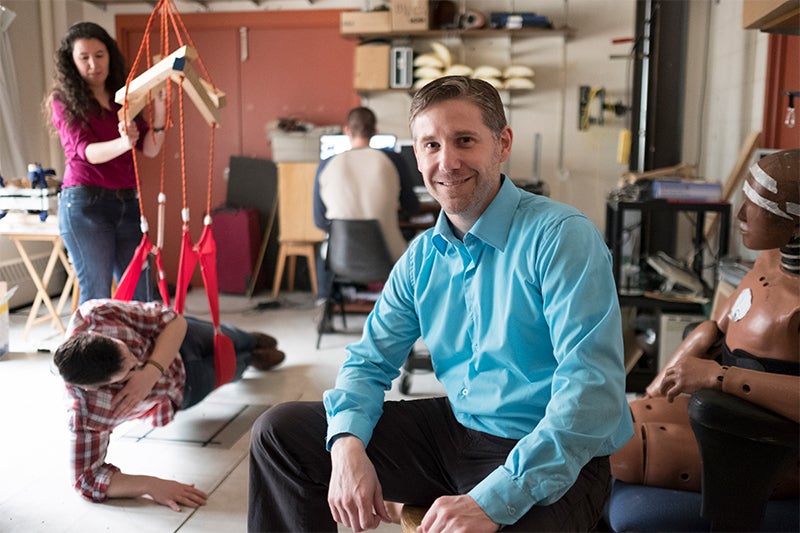Director, Injury Biomechanics and Aging Laboratory

Contact
Office: BMH 3121
Phone: 519-888-4567, ext. 48947
Email: actlaing@uwaterloo.ca
Website: Injury Biomechanics and Aging Lab
Research interests
My general field of interest is musculoskeletal biomechanics related to human health, mobility, and injury prevention, and the role that advanced age has on these relationships. Within this framework, my research over the next five years will focus on three categories: 1) fall-related tissue trauma including hip fractures, spinal cord injuries, and traumatic brain injuries; 2) balance and mobility issues that could increase the risk of fall-related injuries; and 3) workplace musculoskeletal disorders (WMSD). For the former I will use experimental paradigms including human volunteers, mechanical impact simulators (e.g. drop towers), and mathematical models to measure and predict the loads applied to the body during falls, and the protective capacity of a range of protective devices. Age-related changes in balance and mobility will be investigated during a range of activities, with particularly emphasis on responses to dynamic perturbations. The work related to WMSD will involve the measurement of age-related differences in exposures and/or tolerances to loads applied to the body at work, and the development of interventions that target specific age groups. This work will complement existing knowledge related to age-specific injury mechanisms and effective injury prevention across the lifespan.
Graduate supervision and student opportunities
I am currently considering applications for undergraduate and graduate student positions.
More information can be found on how to get involved on our Injury Biomechanics and Aging lab website, or email me to discuss current available positions.
Graduate studies application details
Teaching, expertise, tools and technologies
-
Musculoskeletal biomechanics related to injury
-
Impact biomechanics
-
Balance, falls, and mobility
-
Occupational biomechanics, ergonomics
Courses
KIN 121: Biomechanics of Human Activity
KIN 221: Advanced Biomechanics of Human Movement
KIN 612: Instrumentation and Signal Processing in Biophysical Research
Education
PhD, Simon Fraser University
Selected publications
See Google Scholar for full list of publications.
*M. Glinka, *T.B. Weaver, A.C. Laing. (In Press) Age-related Differences in Sagittal-Plane Kinematics and Centre of Pressure Control during Stooping and Crouching Tasks. Human Movement Science.
*M.J. Warnica, *J. Park, G. Cook, R. Parkinson, J.P. Callaghan, A.C. Laing(In Press). The influence of repeated chin-bar impacts on the protective properties of full-face mountain biking helmets. Proceedings of the Institution of Mechanical Engineers, Part P: Journal of Sports Engineering and Technology.
*T.B. Weaver, Y. Yang, S.N. Robinovitch, A.C. Laing (2016). Falls and Parkinson’s disease: evidence from video recordings of actual fall events. Journal of the American Geriatrics Society. 64(1):96-101.
*I. Levine, L. *Minty, A.C. Laing (2015). Factors that Influence Soft Tissue Thickness Over the Greater Trochanter: Application to Understanding Hip Fractures. Clinical Anatomy. 28(2): 253-261.
*S. Bhan, *I. Levine, A.C. Laing (2013). The influence of body mass index and gender on the impact attenuation properties of flooring systems. Journal of Applied Biomechanics. 29(6):731-9.
*I. Levine, *S. Bhan, A.C. Laing (2013). The effects of body mass index and gender on impact force and effective pelvic stiffness during lateral falls. Clinical Biomechanics. 28(9-10):1026-1033.